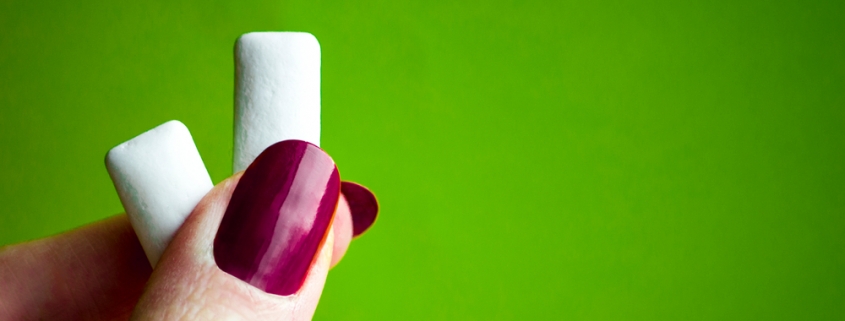What Happens If You Swallow Chewing Gum?
Everyone has swallowed chewing gum at some point in their life, but what happens if you swallow chewing gum? We’ve all heard at one time or another that if you swallow chewing gum, it will stay in your stomach for seven years, but is this true or just a myth? In this post, we will break it down for you.
How long does chewing gum take to digest?
It is entirely untrue that it takes seven years for chewing gum to digest in your stomach. It actually takes anywhere between two and three days to digest chewing gum. It will not sit in your stomach for more than 7 days.
In fact, most of the ingredients found in chewing gum can easily be broken down by your digestive system, it’s actually the gum base that is difficult to digest, which used to be made using chicle (a sap from the sapodilla tree) – thus where the myth originates from.
Despite this, the age-old myth is proven to be an effective way to keep children (and adults) from swallowing gum rather than removing it and putting it into the bin.
How is chewing gum digested in the body?
In medical terms, your digestive system is built to digest what it can and pass anything that can be digested properly into your stool. You will be aware of certain foods that you eat can’t be digested successfully, such as sweetcorn for example. The same goes for when you sallow chewing gum too – as long as it is a small piece (which it tends to be).
Typically, chewing gum is digested in the following 5 steps:
- You swallow the gum.
- It passes through your oesophagus into your small intestine.
- Your small intestine absorbs sugars and nutrients.
- The indigestible portion of the gum moves from the small intestine through the colon.
- It passes through your rectum when you have a bowel movement.
To answer the question on everyone’s lips: what happens if you swallow chewing gum?
Rest assured, it won’t take seven years to digest and your body will be able to digest gum through your body in a few days, so there is no need to panic if you accidentally swallow chewing gum.
Despite this, it isn’t recommended. Swallowing large amounts of gum can be a problem as it can lead to intestinal blockages (called chewing gum bezoars), especially in young children whose intestines are much smaller than adults. This can happen when a large amount of gum is swallowed at once or when someone frequently swallows gum.
In fact, according to medical research, repeatedly swallowing gum can cause:
- abdominal pain
- chronic constipation
- gas
- diarrhoea
- mouth ulcers
Please note: It is worth reminding that it is advisable to not give chewing gum to young children. It should only be given to a child once they are able to understand that they can’t swallow it.
You may also like: What is CBD gum and how does it work?
Feature image credit: ECOSY / Shutterstock




